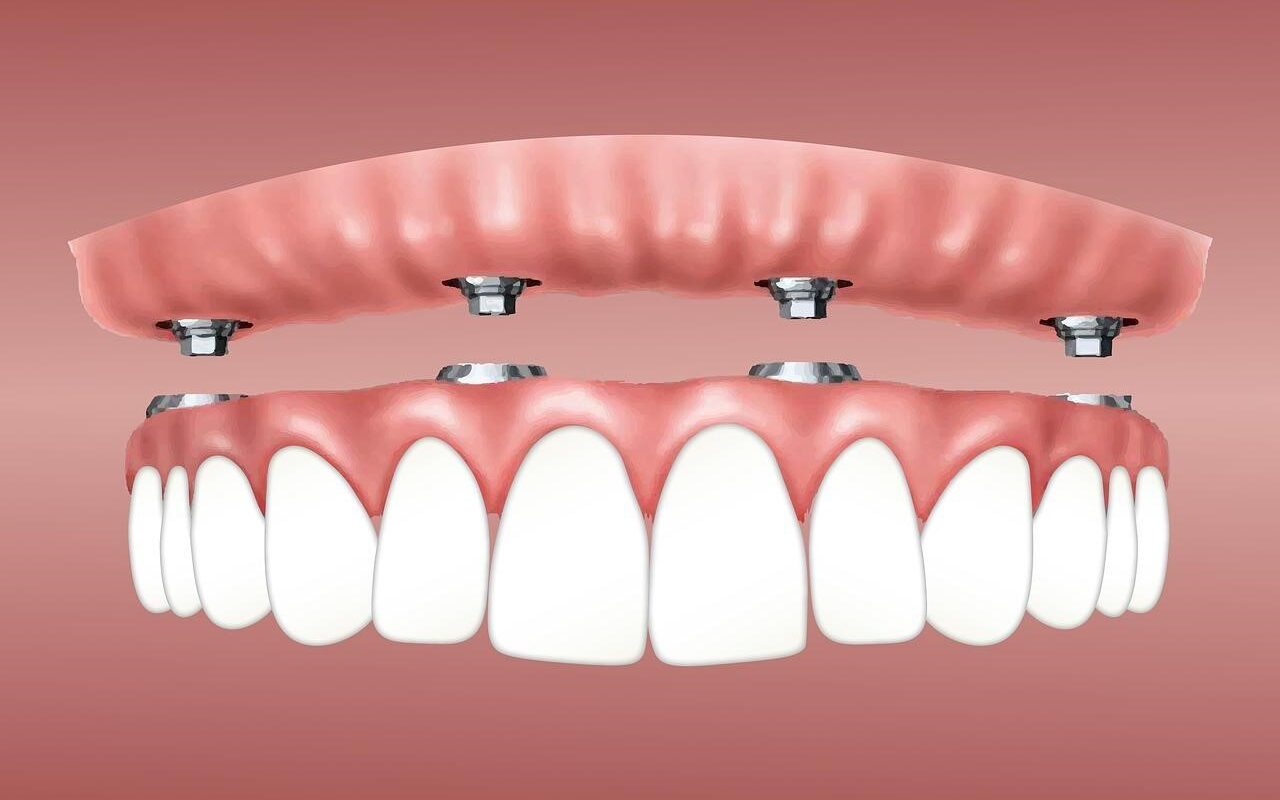Are you tired of dealing with the discomfort and inconvenience of traditional dentures? Do you want a more permanent solution to missing teeth? If so, dental implant-supported dentures may be the answer you’ve been looking for. However, before you make a decision, it’s essential to weigh the pros and cons to determine if they are worth the investment. In this article, we’ll take a closer look at dental implant-supported dentures, their benefits and drawbacks, and what factors to consider before deciding if they are the right choice for you.
What are Dental Implant-Supported Dentures?
Dental implant-supported dentures are a type of denture that uses dental implants to anchor them in place. They are small titanium posts that are surgically placed into the jawbone, where they fuse with the bone over time. Once the implants have fused with the bone, they provide a secure and stable foundation for the dentures to attach to. There are two types of implant-supported dentures: overdentures and fixed dentures.
Overdentures are removable dentures that snap onto the dental implants. They are designed to be taken out for cleaning and maintenance, making them a more hygienic option than traditional dentures. Fixed dentures, on the other hand, are permanently attached to the implants and can only be removed by a dentist. Both types of implant-supported dentures offer many benefits over traditional dentures, but they also come with some drawbacks to consider.
Pros of Dental Implant-Supported Dentures
Stability: Dental implant-supported dentures are anchored to dental implants, which are surgically placed into the jawbone. This provides greater stability and prevents the denture from slipping or shifting in the mouth, which can cause discomfort and embarrassment.
Improved chewing ability: Because dental implant-supported dentures are more stable, they allow for better chewing and biting function. This means that patients can enjoy a wider range of foods, including hard and crunchy foods, which may be difficult to eat with traditional dentures.
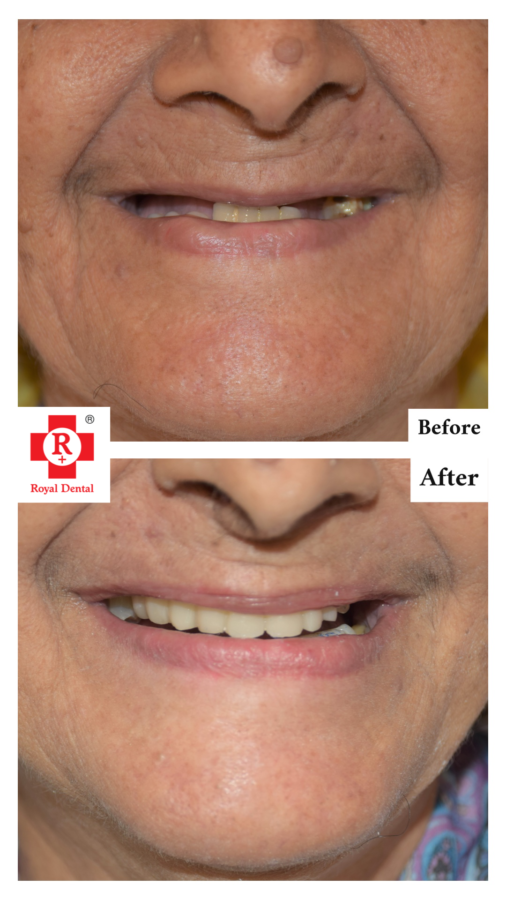
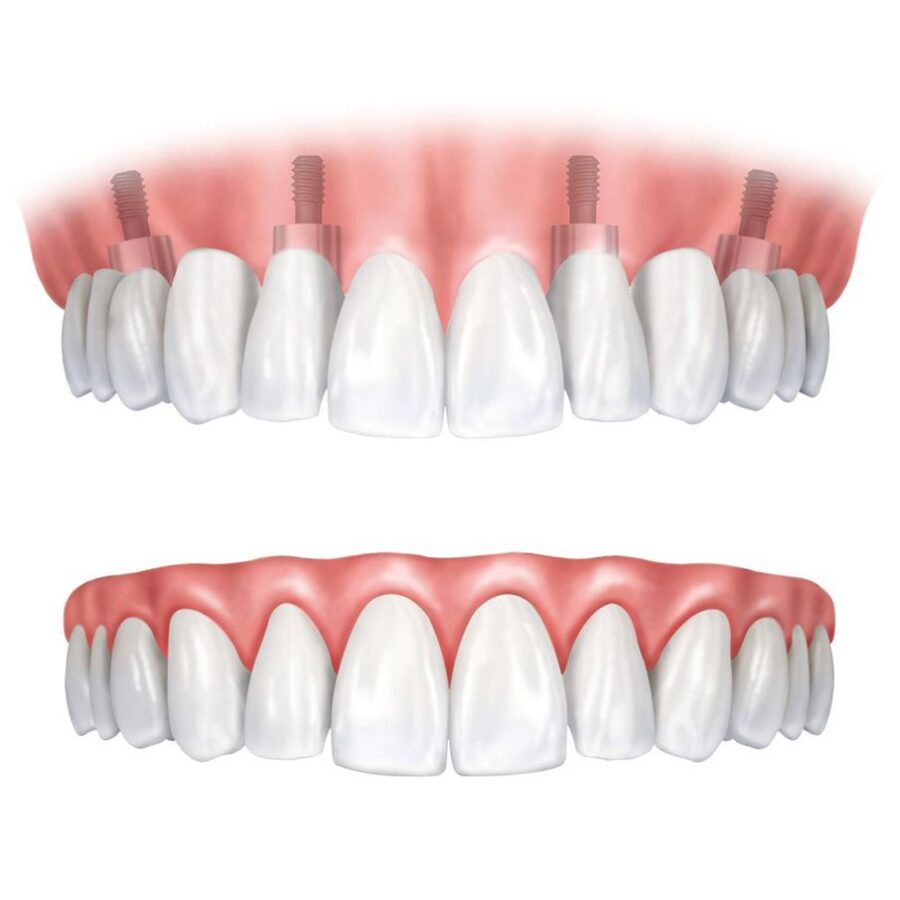
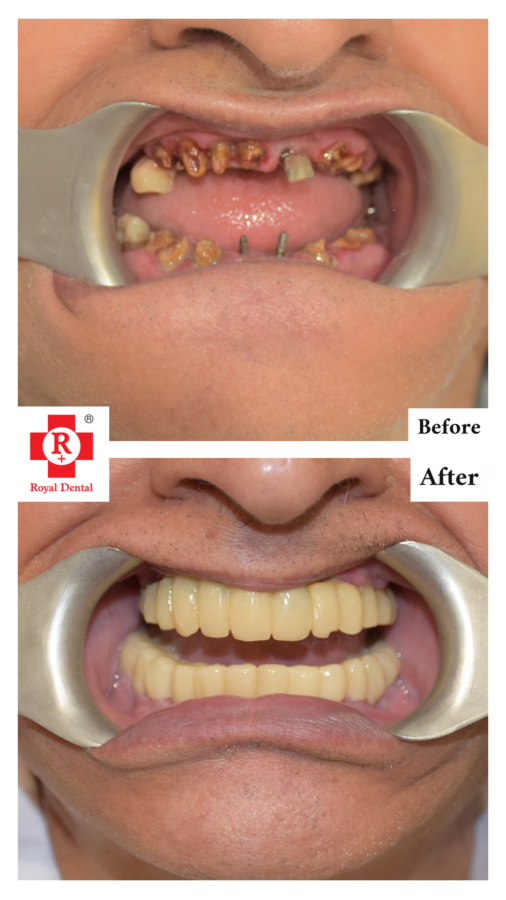
Improved speech: Traditional dentures can sometimes slip or shift in the mouth, causing speech problems. They are more stable, which can help improve speech and pronunciation.
Improved oral health: Traditional dentures can cause gum irritation and bone loss in the jaw over time. Dental implant-supported dentures, on the other hand, can actually help preserve bone and prevent further deterioration.
Long-term cost savings: While dental implant-supported dentures may have a higher upfront cost than traditional dentures, they are typically more cost-effective in the long run. Traditional dentures may need to be replaced or adjusted over time, while dental implant-supported dentures can last for many years with proper care.
Cons of Dental Implant-Supported Dentures
Cost: They can be more expensive than traditional dentures, as the process requires surgery to place the implants into the jawbone. The cost can vary depending on the number of implants needed and the type of denture used.
Surgical procedure: The placement of dental implants requires surgery, which may not be suitable for all patients. Patients with certain medical conditions may not be able to undergo the procedure.
Healing time: After the implants are placed, there is a healing period during which the implants fuse with the jawbone. This can take several months, during which time the patient may have to wear a temporary denture or go without teeth.
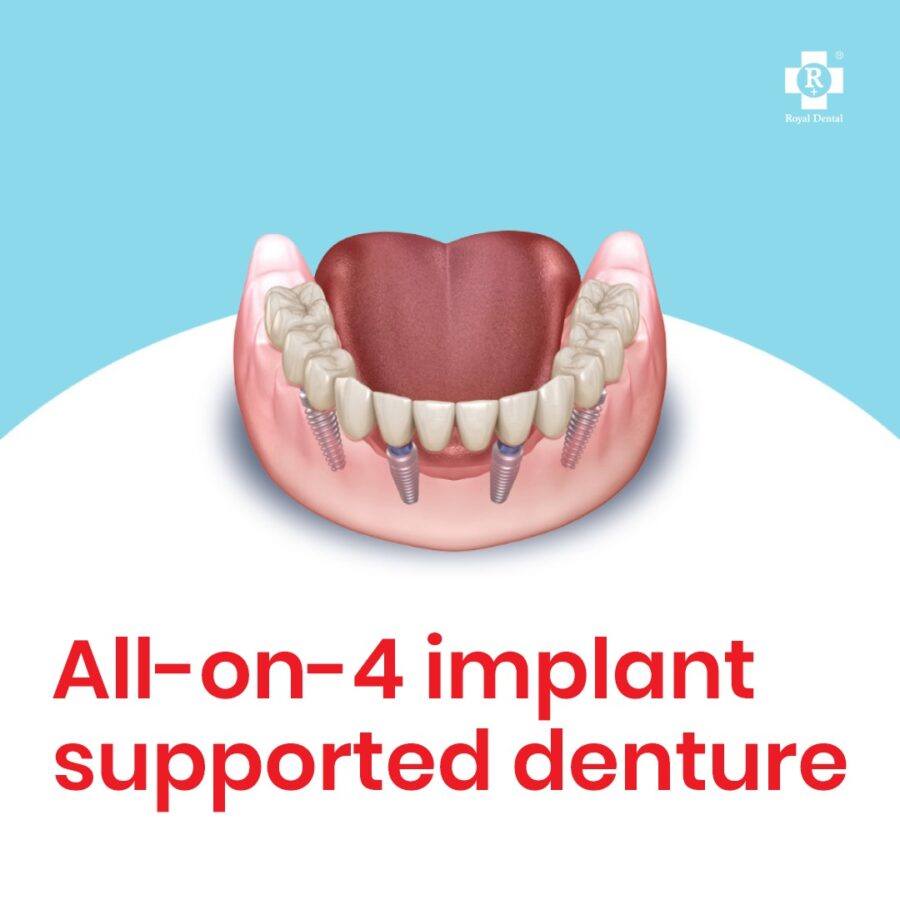
Maintenance: Dental implant-supported dentures require regular maintenance, including daily cleaning and periodic adjustments by a dentist. Failure to maintain the denture can lead to complications such as infection or implant failure.
Possible complications: As with any surgical procedure, there is a risk of complications with dental implant placement, such as infection, nerve damage, or implant failure. It’s important for patients to discuss the risks and benefits with their dentist and make an informed decision.
Factors when choosing Implant-Supported Dentures
Before deciding if implant-supported dentures are the right choice for you, there are several factors to consider. First, it’s essential to have a thorough dental examination to determine if you are a good candidate for dental implants. Factors that can impact your candidacy include the condition of your jawbone, your overall health, and any medications you are taking.
It’s also important to consider your lifestyle and personal preferences. If you are looking for a more permanent and stable solution to missing teeth, implant-supported dentures may be the best choice. However, if you prefer a more removable option, traditional dentures may be a better fit.
Finally, it’s important to consider the cost of implant-supported dentures and whether they fit within your budget. While they may be more expensive than traditional dentures, they offer many long-term benefits that can save you money in the long run.
Cost: Traditional vs Implant-Supported Dentures
The cost of dental implant-supported dentures can vary depending on several factors, including the number of implants required and the type of denture used. On average, implant-supported dentures can cost anywhere from $5,000 to $15,000 per arch. Traditional dentures, on the other hand, can cost anywhere from $1,500 to $4,000 per arch.
While the cost of implant-supported dentures may seem high, it’s important to consider the long-term benefits they offer. With proper care and maintenance, implant-supported dentures can last for many years, reducing the need for frequent replacements that can add up over time. Additionally, implant-supported dentures offer many benefits over traditional dentures, including improved chewing ability, a more natural appearance, and a more comfortable fit.
Dental Implant Procedure and Recovery
The procedure involves several steps, including a thorough dental examination, the placement of the dental implants, and the attachment of the denture. The procedure typically takes several months to complete and requires a significant recovery period. During the recovery period, it’s important to follow your dentist’s instructions to ensure proper healing and avoid complications.
After the dental implants are placed, it’s important to maintain good oral hygiene to prevent infection and ensure proper healing. This includes brushing and flossing regularly, using an antibacterial mouthwash, and avoiding hard or crunchy foods that can damage the implants.
Dental Implant Maintenance and Care
- Practice good oral hygiene: Just like natural teeth, dental implants and dentures need to be cleaned regularly to prevent infection and maintain good oral health. Brush twice a day and floss daily, using a soft-bristled brush and non-abrasive toothpaste.
- Use an antimicrobial mouthwash: To help prevent infection, use an antimicrobial mouthwash recommended by your dentist.
- Visit your dentist regularly: Regular checkups with your dentist are important to monitor the health of your implants and dentures. Your dentist can also make adjustments or repairs as needed.
4. Avoid hard or sticky foods: Hard or sticky foods can damage or dislodge the dentures or implants. Stick to soft foods and avoid chewing on hard objects like ice or pens.
5. Quit smoking: Smoking can increase the risk of implant failure and other oral health problems. If you smoke, consider quitting or reducing your smoking to improve your oral health.
6. Protect your mouth: Wear a mouth guard during sports or other physical activities to protect your mouth and dental implants from injury.
By following these tips and working closely with your dentist, you can ensure the long-term success of your dental implant-supported dentures.
Success Rates of Dental Implant-Supported Dentures
They have a high success rate, with up to a 98% success rate reported in some studies. However, the success rate can vary depending on several factors, including the condition of the jawbone, the skill of the dentist, and proper care and maintenance.
To ensure the best possible outcome, it’s essential to choose a qualified and experienced dentist who specializes in implant dentistry. Additionally, it’s important to follow your dentist’s instructions for care and maintenance to ensure the longevity and success of your implant-supported dentures.
Who is a Good Candidate for Implant-Supported Dentures?
While they offer many benefits, they are not suitable for everyone. Ideal candidates for implant-supported dentures include those who have good oral health, adequate jawbone density. And a commitment to proper care and maintenance. Additionally, candidates should be in good overall health and able to tolerate the surgical procedure required to place the dental implants.
If you are interested in implant-supported dentures, it’s essential to schedule a consultation with a qualified dentist to determine if you are a good candidate. Your dentist can evaluate your oral health, discuss your options, and help you make an informed decision about the best solution for restoring your smile.
Conclusion
Dental implant-supported dentures offer many benefits over traditional dentures. Including improved chewing ability, a more natural appearance, and a more comfortable fit. However, they also come with some drawbacks to consider. Including the cost and the surgical procedure required to place the dental implants. Before deciding if implant-supported dentures are the right choice for you. It’s essential to consider your lifestyle, personal preferences, and budget. As well as speak with a qualified dentist to determine if you are a good candidate. With proper care and maintenance. Implant-supported dentures can provide a permanent and secure solution to missing teeth, giving you a beautiful and confident smile for years to come.

